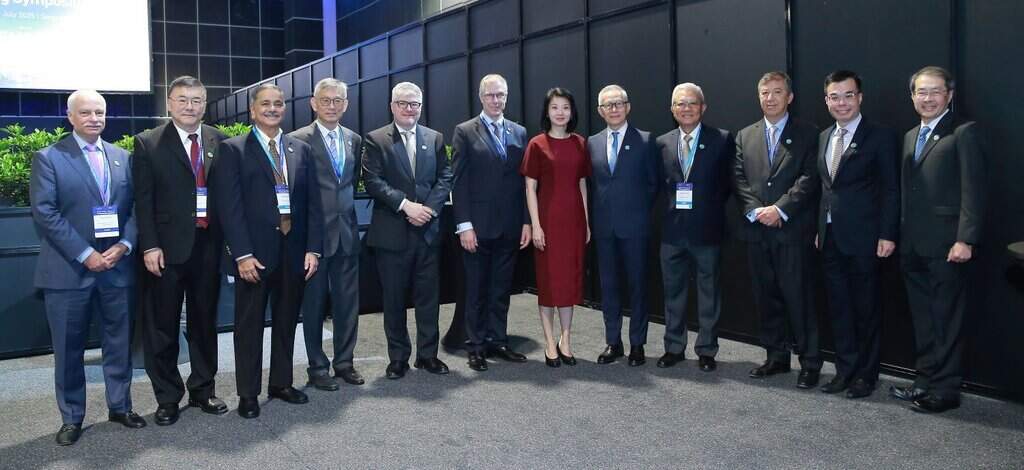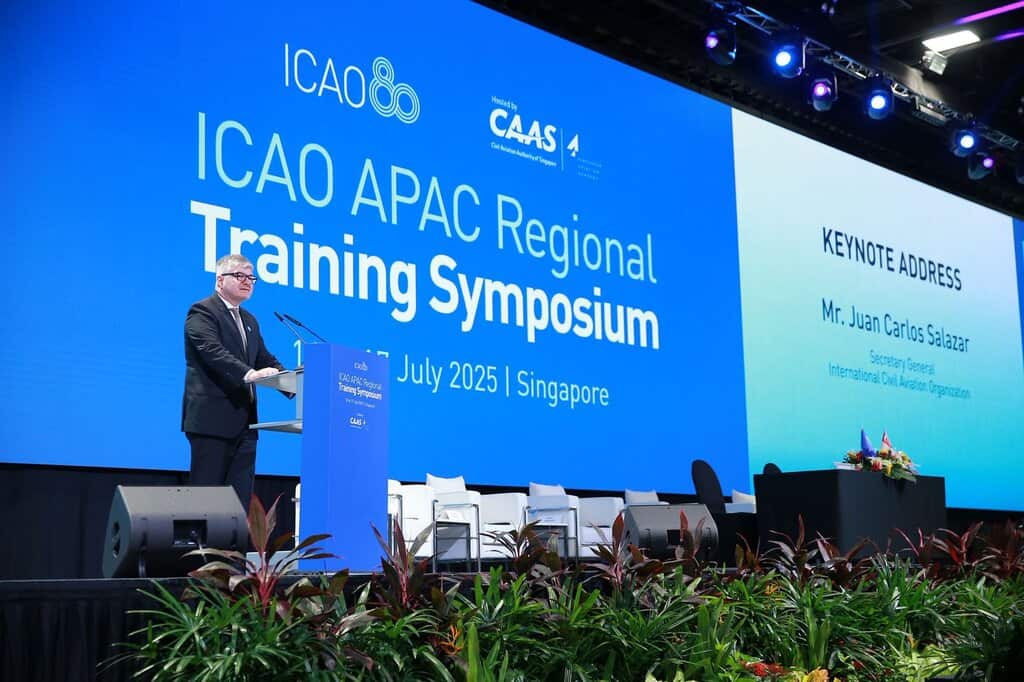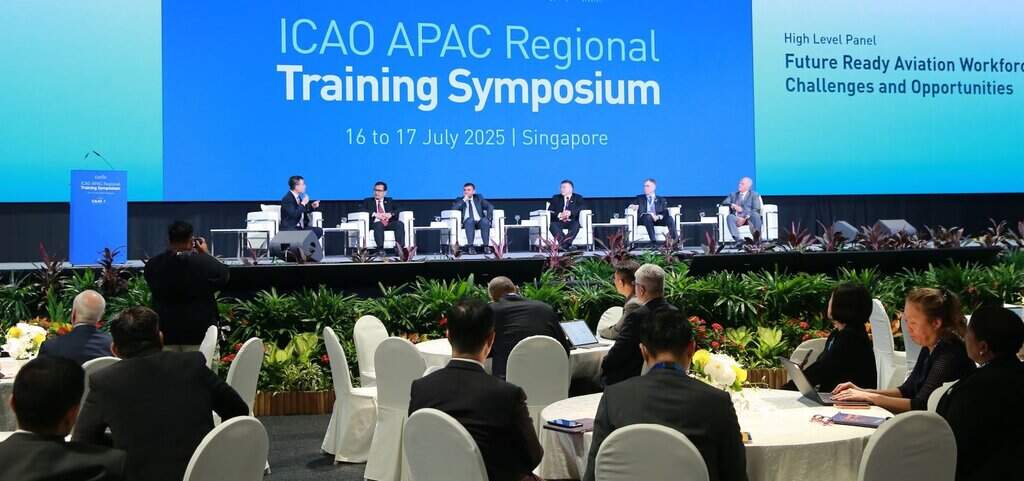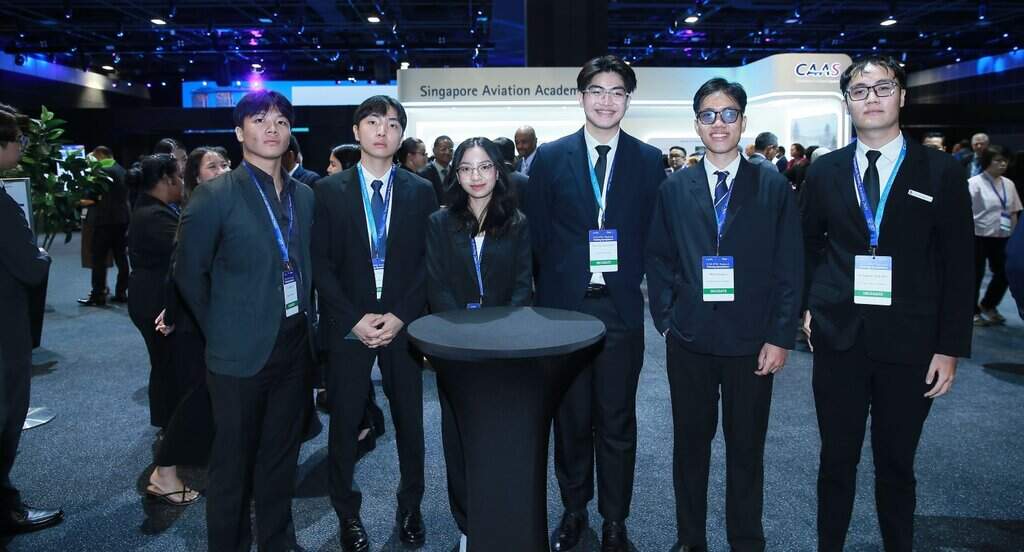The aviation sector is rapidly evolving—driven by innovation, emerging technologies, and new sustainability imperatives. Ensuring that aviation professionals are equipped with the skills and competencies to navigate these changes is a global priority. Through our Global Aviation Training Programme, we work closely with its Member States, regional bodies, and training organizations to develop high-quality training solutions that align with international standards and support safe, secure, and sustainable aviation operations.
 From 16 to 17 July 2025, we worked with the Civil Aviation Authority of Singapore (CAAS), to convene the ICAO APAC Regional Training Symposium in Singapore. We designed the event to spark meaningful dialogue and strengthen cooperation on human resource development in aviation across the Asia-Pacific (APAC) region. The event brought together civil aviation authorities, training organizations, academic institutions, and private-sector partners to share best practices, explore emerging training methodologies, and foster more strategic partnerships for aviation workforce development.
From 16 to 17 July 2025, we worked with the Civil Aviation Authority of Singapore (CAAS), to convene the ICAO APAC Regional Training Symposium in Singapore. We designed the event to spark meaningful dialogue and strengthen cooperation on human resource development in aviation across the Asia-Pacific (APAC) region. The event brought together civil aviation authorities, training organizations, academic institutions, and private-sector partners to share best practices, explore emerging training methodologies, and foster more strategic partnerships for aviation workforce development.
Our goal is to support States in developing tailored, effective training programmes that address national priorities, while also helping participants stay ahead of emerging trends and leverage new technological tools. By enhancing collaboration between regulators, training providers, and academia, we aim to ensure that training programmes remain responsive, forward-looking, and impactful. This event also helped us advance our Next Generation of Aviation Professionals (NGAP) initiative, helping build a sustainable global workforce—and inspiring youth to explore the diverse career paths available in aviation.

Among the Symposium’s key highlights was the series of high-level panel discussions that included the following:
-
Future-ready aviation workforce: challenges and opportunities
This session will tackle the urgent issues of attracting and retaining talent in a rapidly evolving sector. Panelists will discuss how to develop a sustainable pipeline of professionals, align training with future skill needs, and create a culture of lifelong learning. -
Nurturing the next generation of aviation professionals – strategy and policies
Focusing on government and industry strategies, this panel will explore how to support workforce development, promote professional growth, and ensure long-term talent retention. -
Leveraging educational technologies and innovative methodologies
This session will showcase how training institutions are integrating tools such as virtual reality, artificial intelligence, and simulation into their programmes. Participants will gain insight into how innovation is helping close skills gaps and elevate training outcomes across aviation disciplines. -
Regional cooperation in training
We’ll also spotlight training opportunities through the TRAINAIR PLUS Programme (TPP) and regional training institutes, highlighting how collaboration has fostered innovation and efficiency in aviation education across the APAC region.

This landmark event, aimed to enhance regional collaboration and innovation in aviation training, was held alongside the 7th Regional Training Cooperation Framework (RTCF) Working Group Meeting on 15 July. The week-long programme brought together aviation leaders, educators, and youth to shape the future of aviation capacity building in the region.
The Symposium opened with keynote speeches from Mr. Ma Tao, ICAO APAC Regional Director; Ms. Sun Xueling, Singapore’s Senior Minister of State for Transport; and Mr. Juan Carlos Salazar, ICAO Secretary General. The opening ceremony also featured the Singapore-ICAO NGAP Scholars Award Ceremony, recognizing outstanding young talents committed to the Next Generation of Aviation Professionals (NGAP) initiative.

The Symposium featured a dynamic programme that included two high-level panels and four thematic discussion panels. These sessions addressed strategic priorities such as innovation in aviation training, digital transformation, competency-based approaches, and regional cooperation. Participants also took part in technical visits to aviation industry facilities in Singapore and engaged in a social programme designed to foster networking and collaboration.

Running concurrently from 14 to 18 July, the Asia-Pacific Youth for Aviation (YFA) Programme welcomed 37 youth participants from 18 States and Administrations. This initiative provided immersive learning experiences, mentorship, and exposure to aviation careers, reinforcing ICAO’s commitment to youth engagement and workforce development.
On 15 July, the 7th RTCF Working Group Meeting convened to advance regional training cooperation. Discussions focused on updates to the RCMTF Paper for the upcoming DGCA/60 Conference, preparations for the ICAO Training Symposium, development of the Regional Training Compendium, a comprehensive Training Needs Analysis (TNA), and progress on the Train-the-Trainer Programme.
The meeting concluded with three key outcomes: the successful hosting of the 1st Regional Training Symposium, the publication of the 1st Regional Training Compendium, and the completion of the TNA Report, which includes a proposal for a Regional Training Programme.
These events mark a significant step forward in ICAO APAC’s efforts to strengthen aviation training frameworks, promote youth engagement, and foster regional cooperation. The outcomes will serve as a foundation for future initiatives aimed at ensuring a safe, efficient, and sustainable aviation sector in the Asia-Pacific region.
